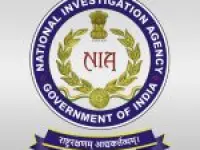
Gautam Navlakha, a journalist and human rights activist, was arrested on April 14, 2020, for his alleged role in the Bhima Koregaon violence.
The Supreme Court Tuesday granted bail to civil rights activist Gautam Navlakha, who faces charges under the Unlawful Activities Prevention Act (UAPA) to the 2018 Bhima Koregaon violence case. However, his release is contingent upon the payment of Rs 20 lakh for his house arrest.
The bench, led by Justices MM Sundresh and SVN Bhatti, noted that with the extensive number of witnesses and other significant factors, the trial could potentially extend for several more years.
“We are inclined to not extend the stay as the Bombay High Court order is detailed in granting bail. The trial would take years and years and years to complete. Without going at length into contentions, we will not extend the stay,” said the bench in its order.
The Supreme Court was hearing the National Investigation Agency’s (NIA) appeal against the high court”s December order granting bail to Navlakha. The high court had noted the absence of material evidence to suggest his involvement in a terrorist act under Section 15 of the UAPA. However, the NIA challenged this order in the Supreme Court, leading to a stay that was repeatedly extended.
Navlakha, a journalist and human rights activist, was arrested on April 14, 2020, for his alleged role in the Bhima Koregaon violence, triggered after allegedly provocative remarks were made at an Elgar Parishad conference in Pune on December 31, 2017. These remarks allegedly incited unrest the following day near the Koregaon-Bhima war memorial in western Maharashtra, resulting in one death.
Initially arrested in August 2018, Navlakha was placed under house arrest and later sent to judicial custody in Taloja Central Prison in April 2020 following a Supreme Court order. In November 2022, the top court allowed his plea for house arrest due to his advanced age. He has since remained under house arrest in Navi Mumbai.
During Tuesday”s proceedings, the court addressed Navlakha’s plea concerning the terms of his house arrest alongside the bail matter. Considering his over four-year confinement and the potential lengthy trial duration, especially since charges had not yet been framed, the court lifted the interim stay.
In earlier hearings, Navlakha’s legal representative, senior counsel Nitha Ramakrishnan, highlighted the extensive number of witnesses in the case, suggesting a potential decade-long trial. She also raised concerns about the high court’s bail order being stayed without hearing Navlakha.
Regarding house arrest, the Supreme Court directed Navlakha to pay Rs 20 lakh as a bail condition. However, the NIA, represented by additional solicitor-general SV Raju, claimed Navlakha owed approximately ₹1.75 crore for expenses to his house arrest. The court deferred the NIA’s appeal against the bail for a later date and indicated that the issue of monetary dues could be addressed subsequently.
In a previous hearing, the bench indicated Navlakha must cover surveillance expenses incurred by the NIA for house arrest. Navlakha’s legal team assured the court of their willingness to pay these expenses, but cited the need for accurate calculations.













